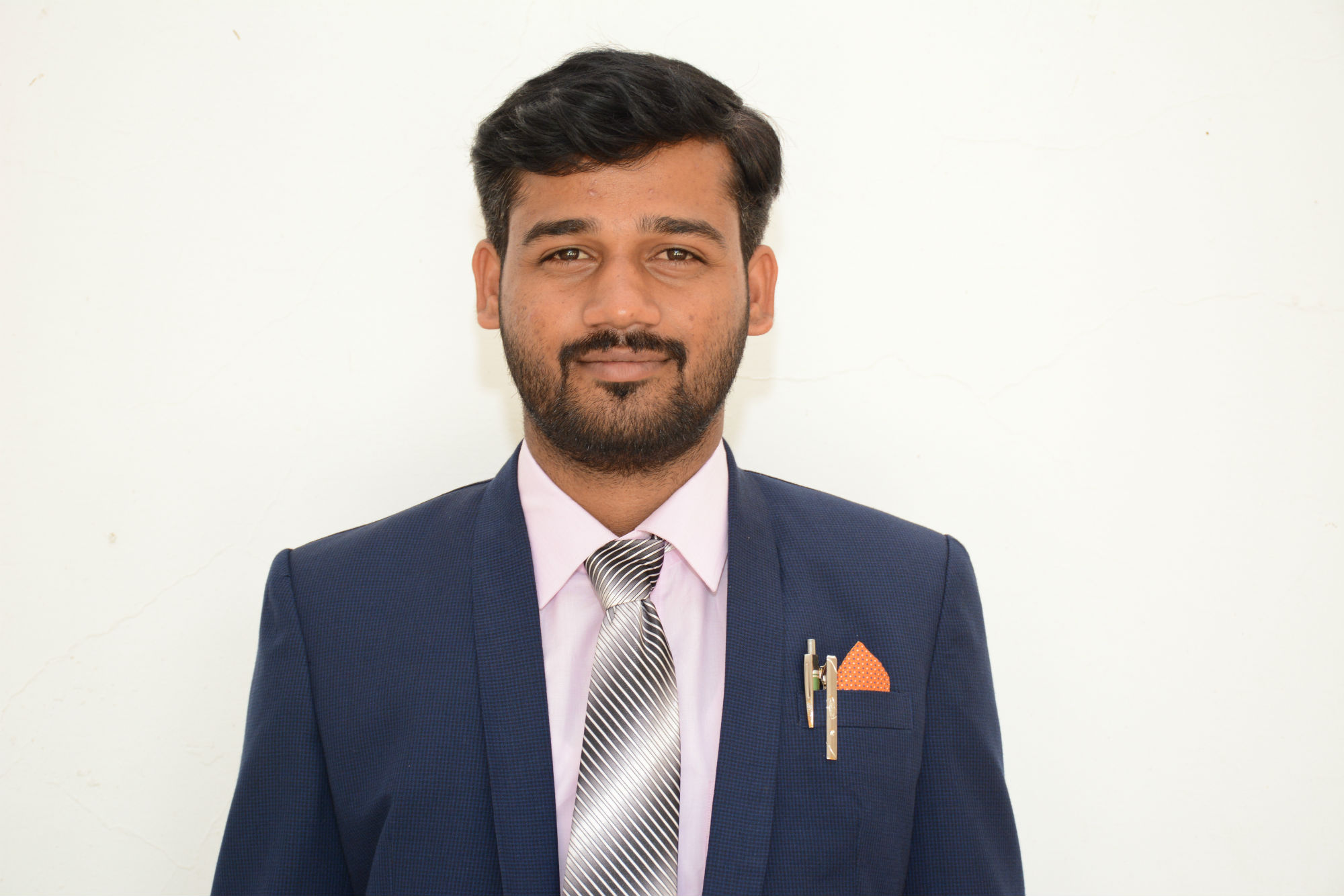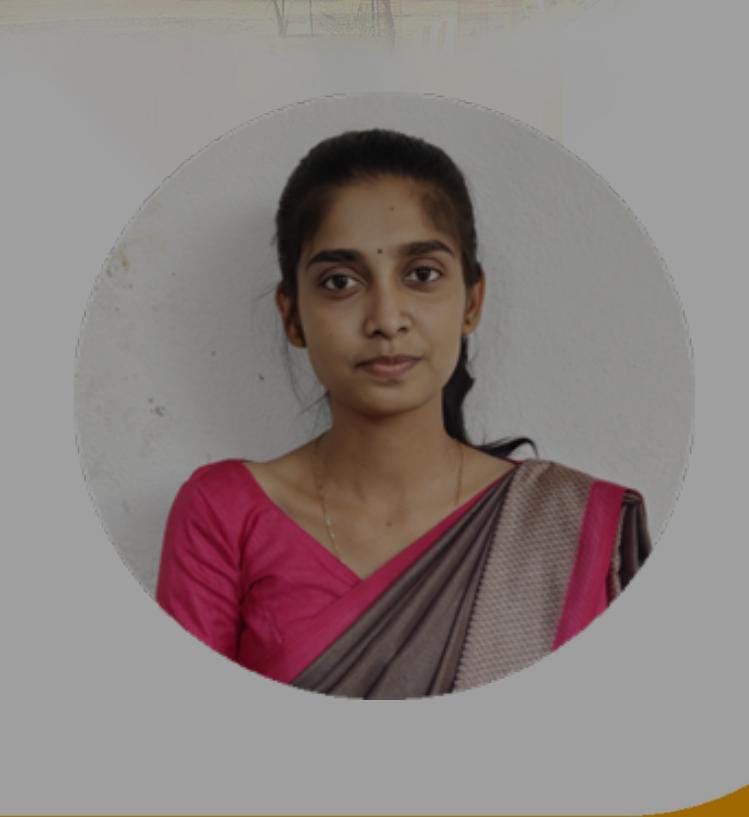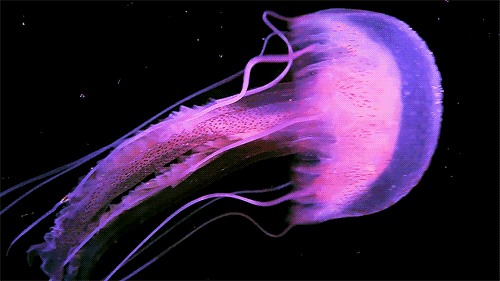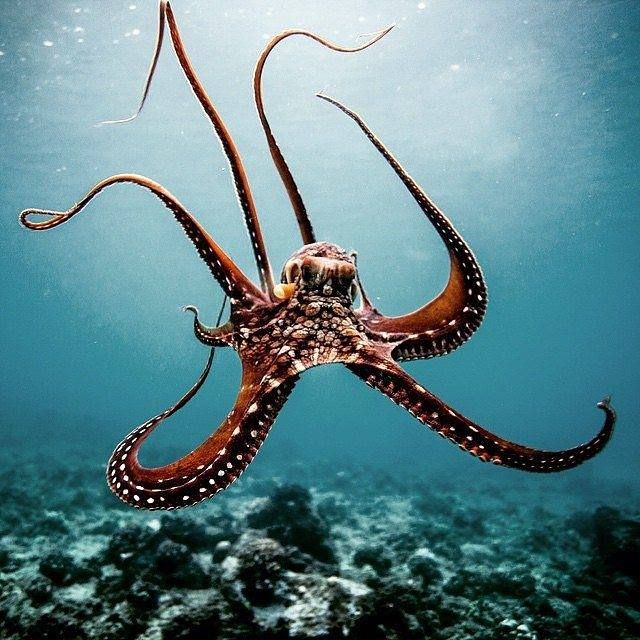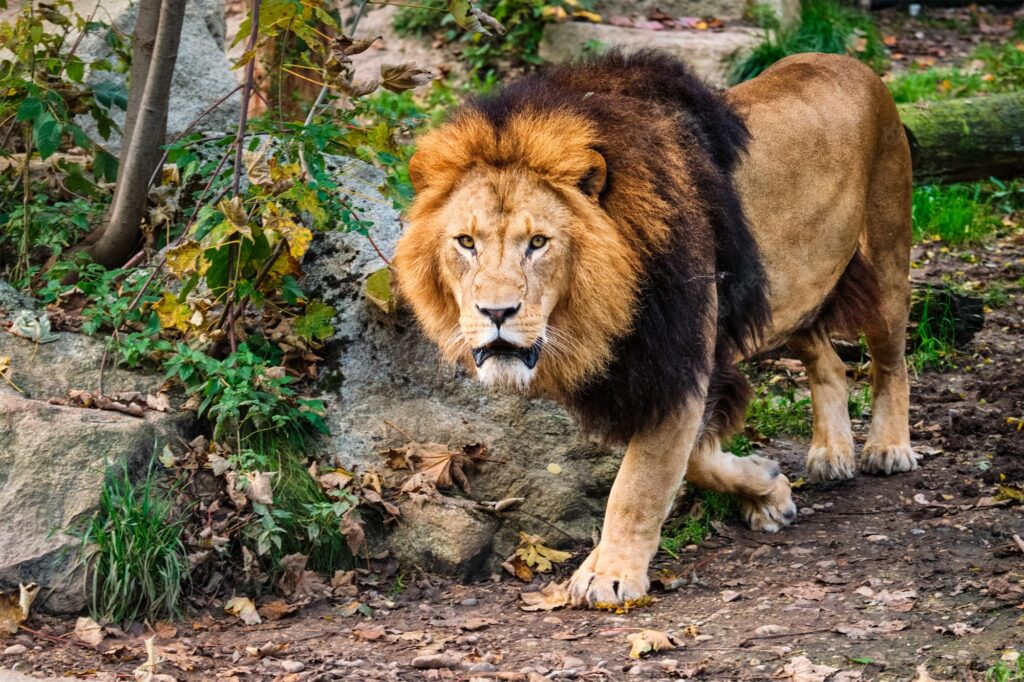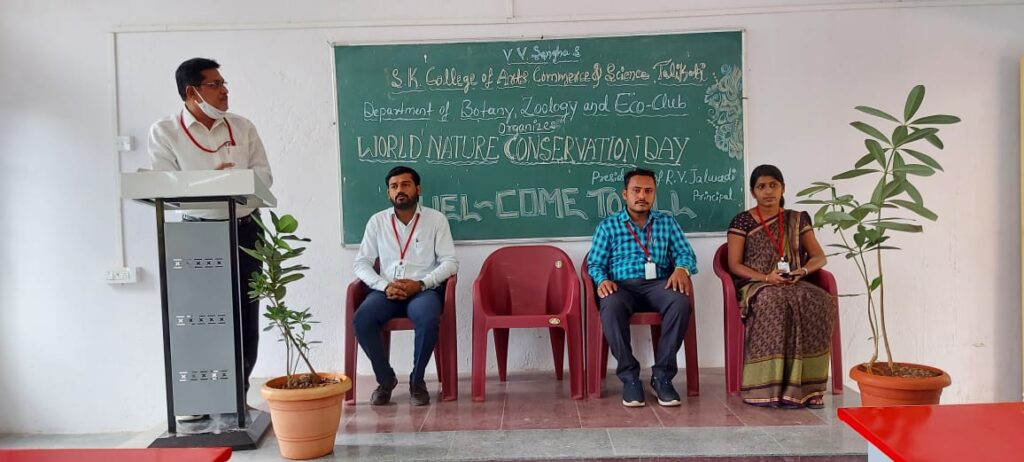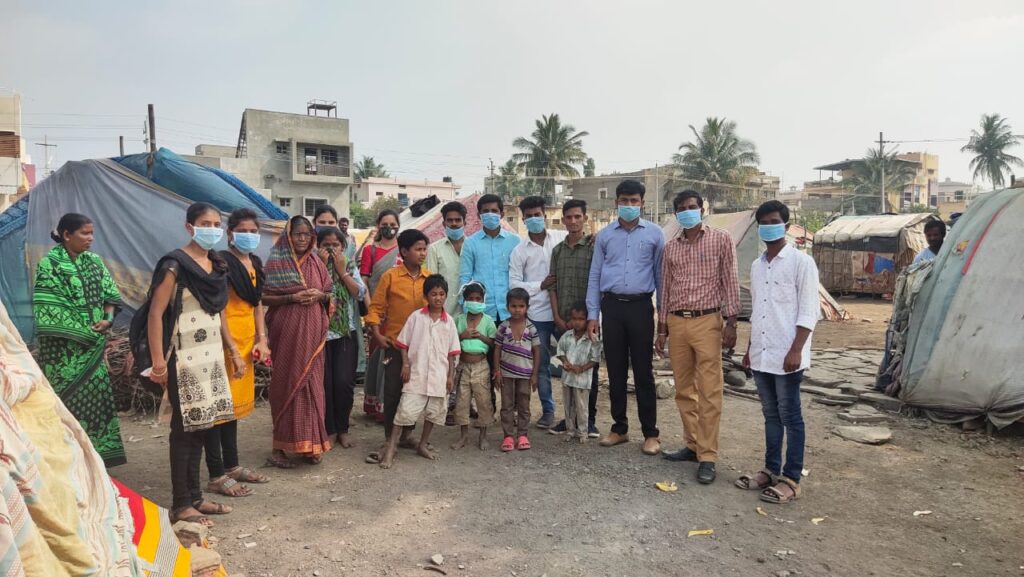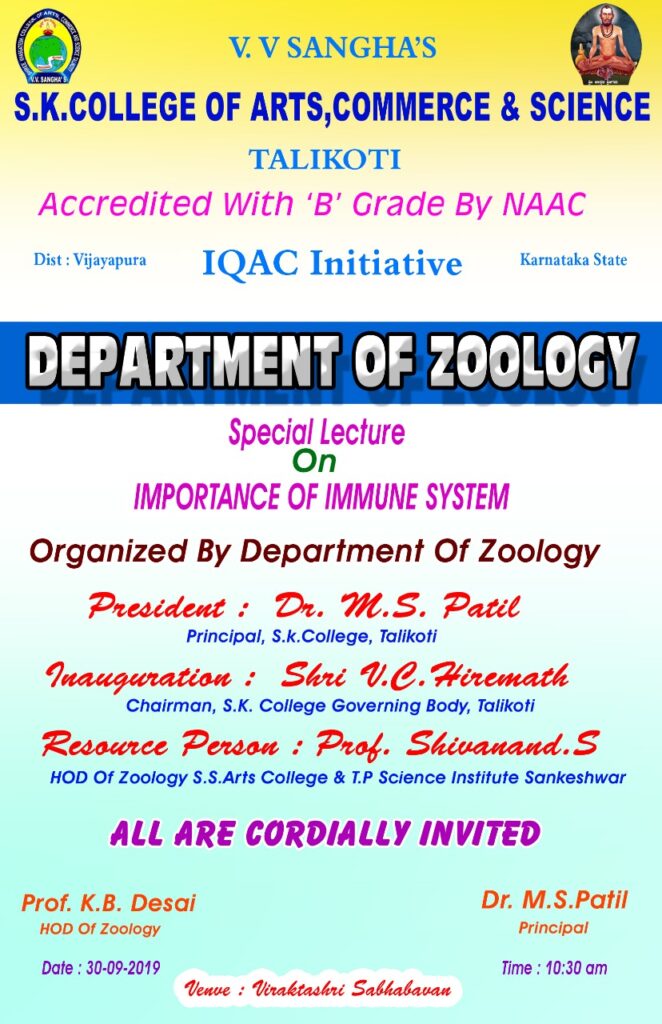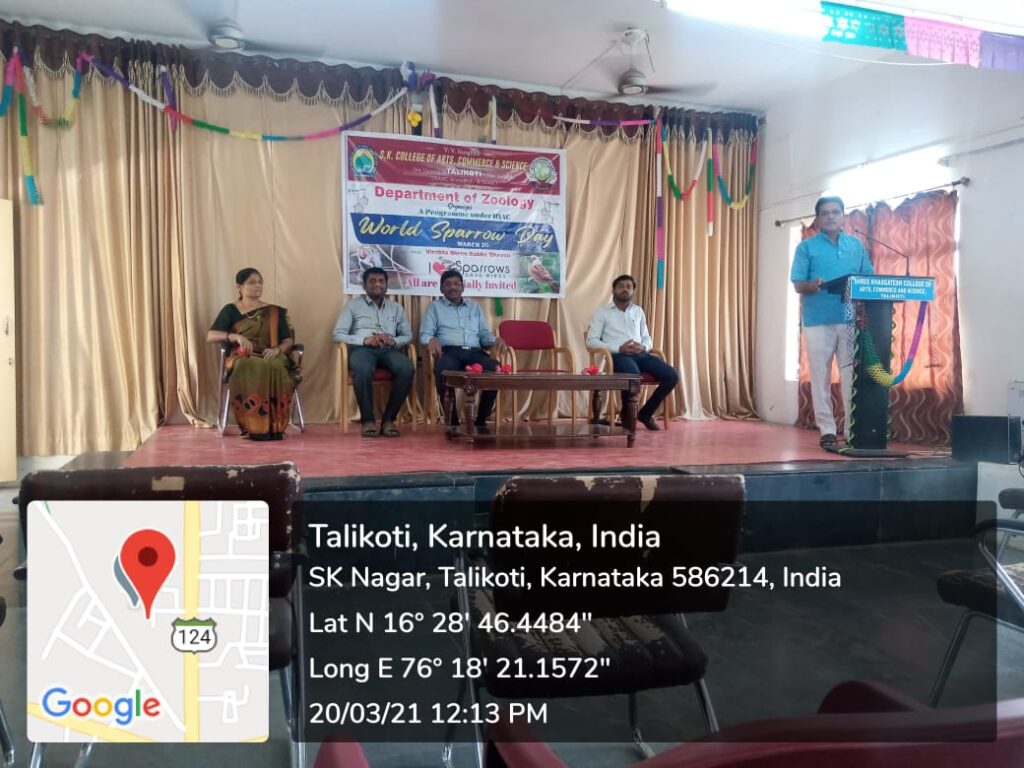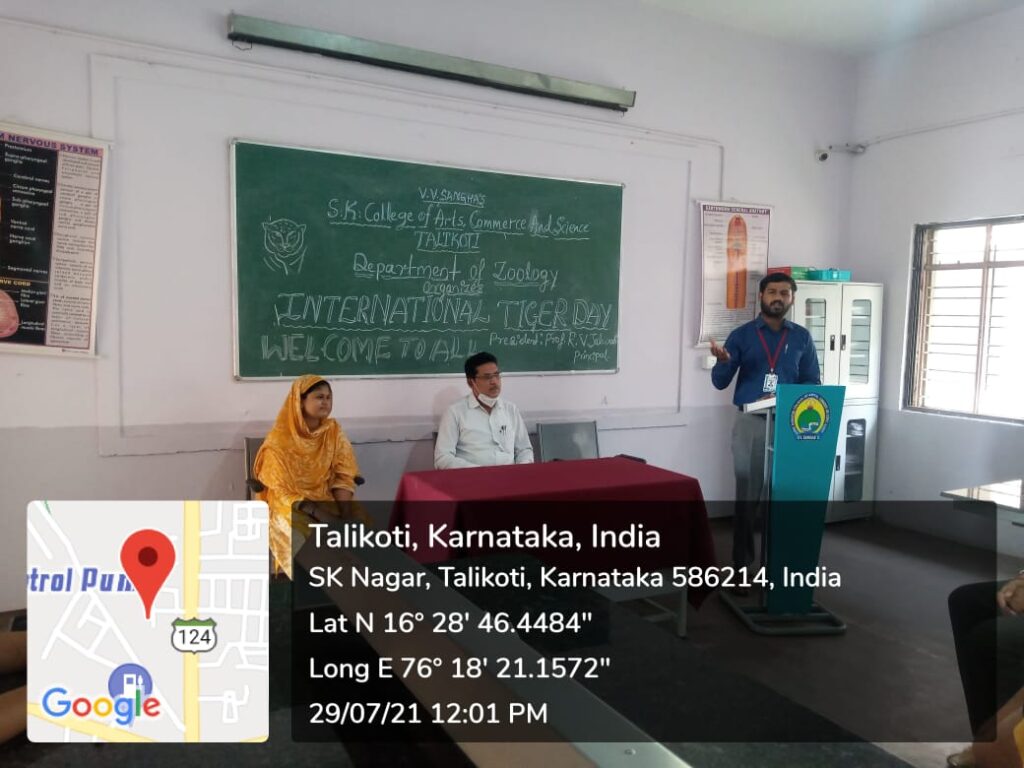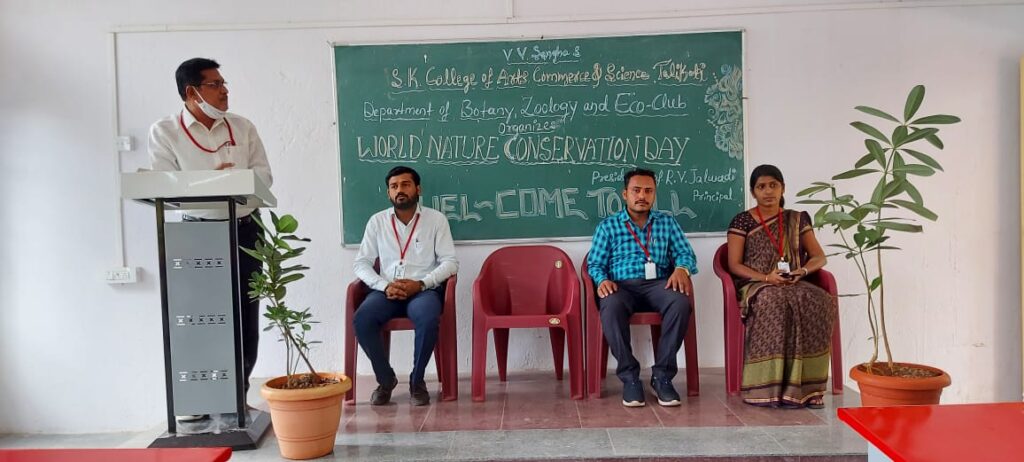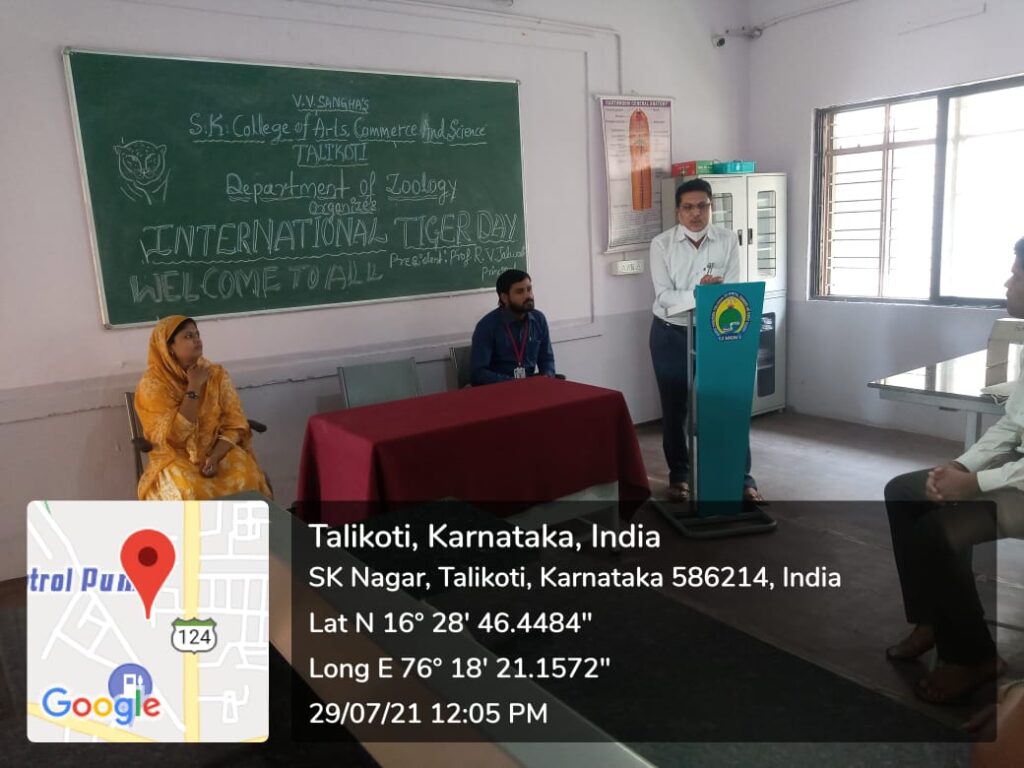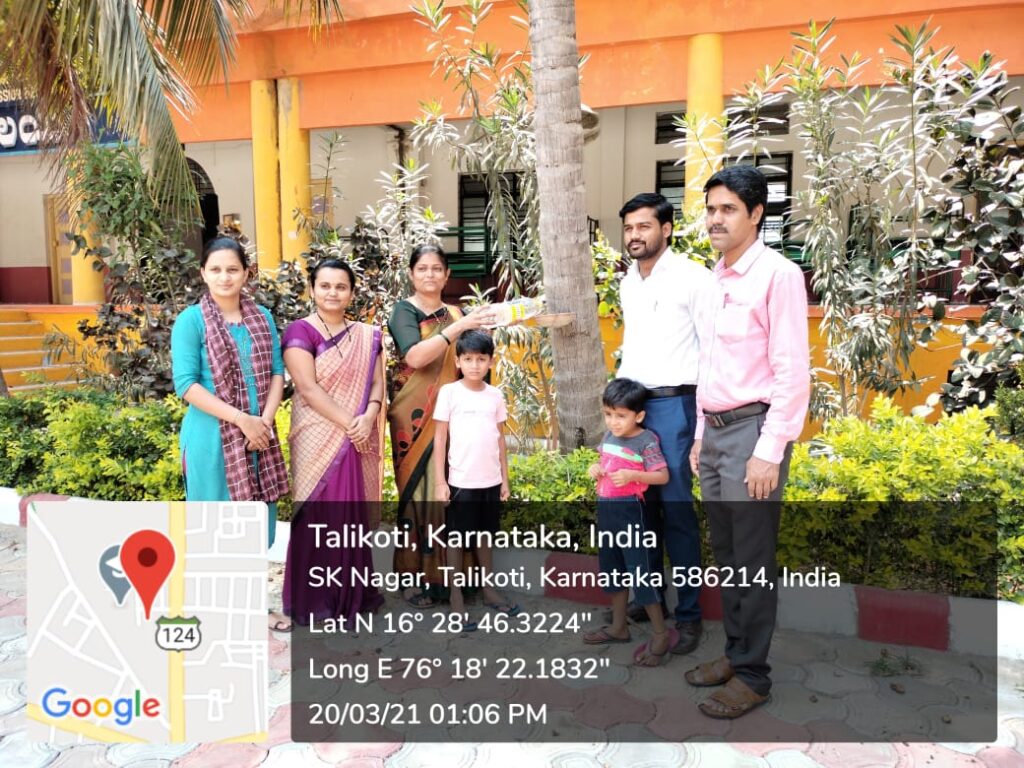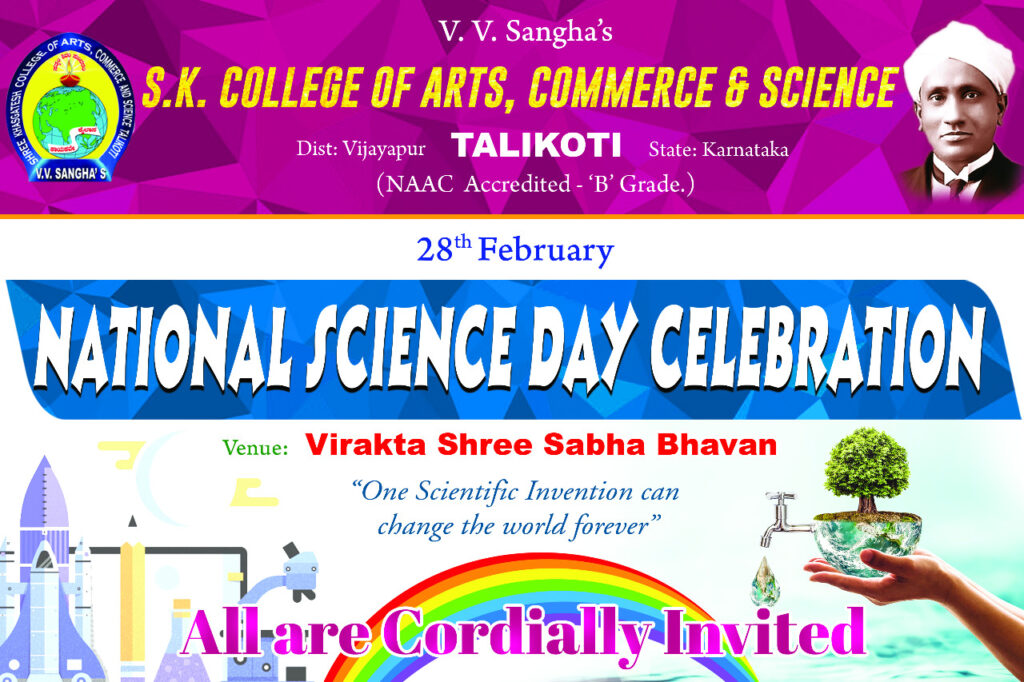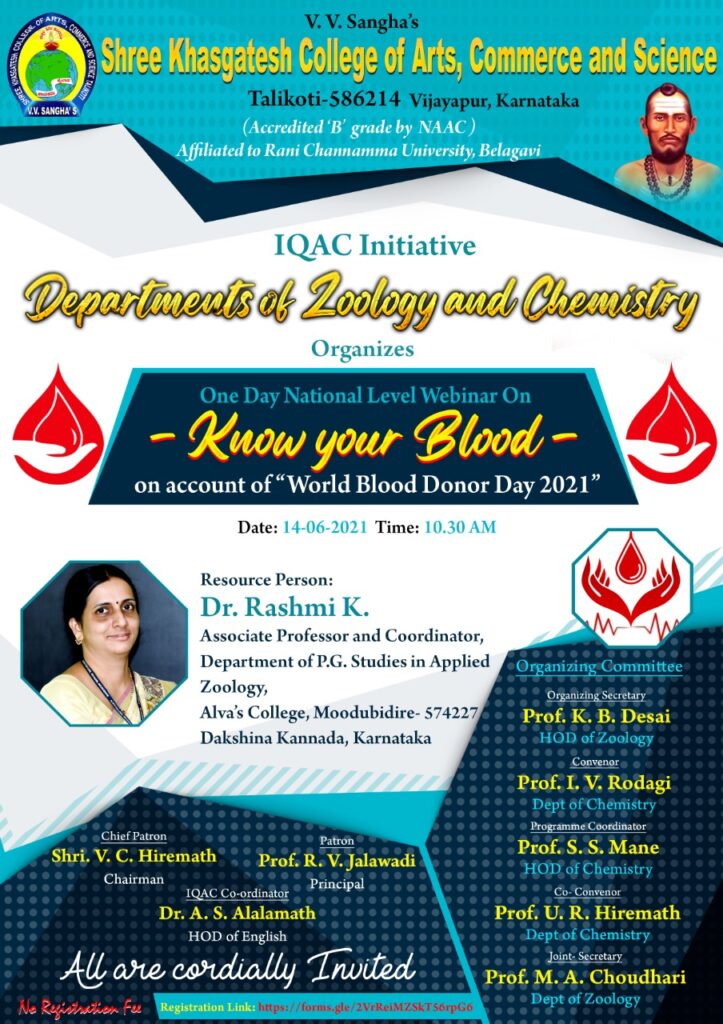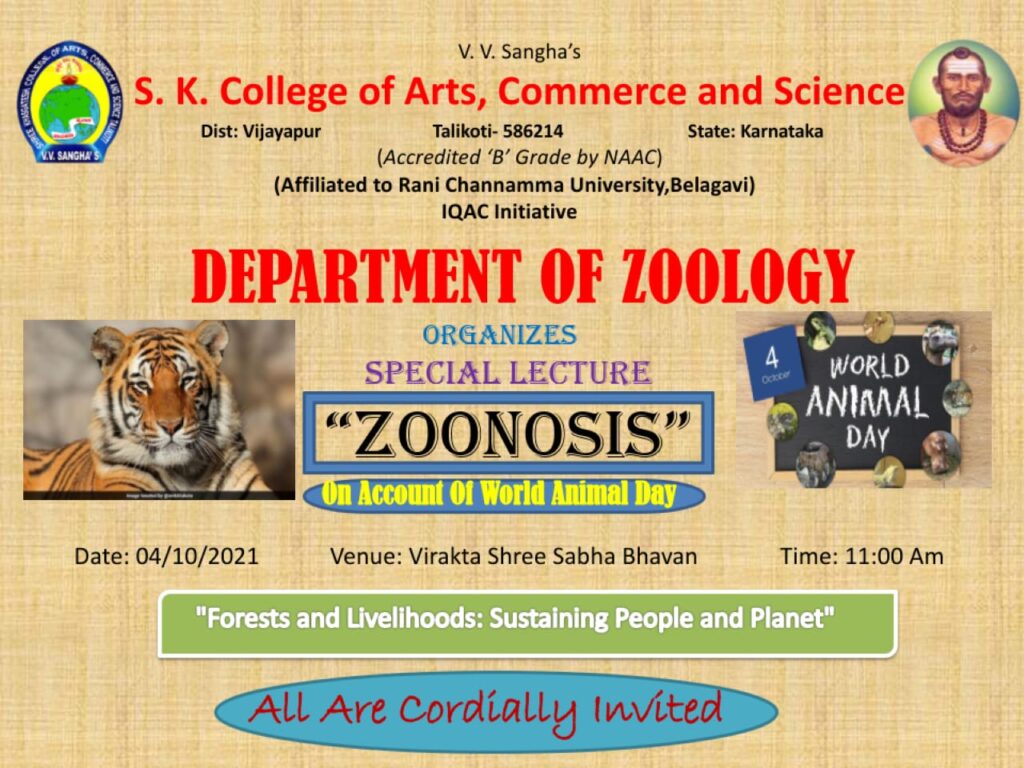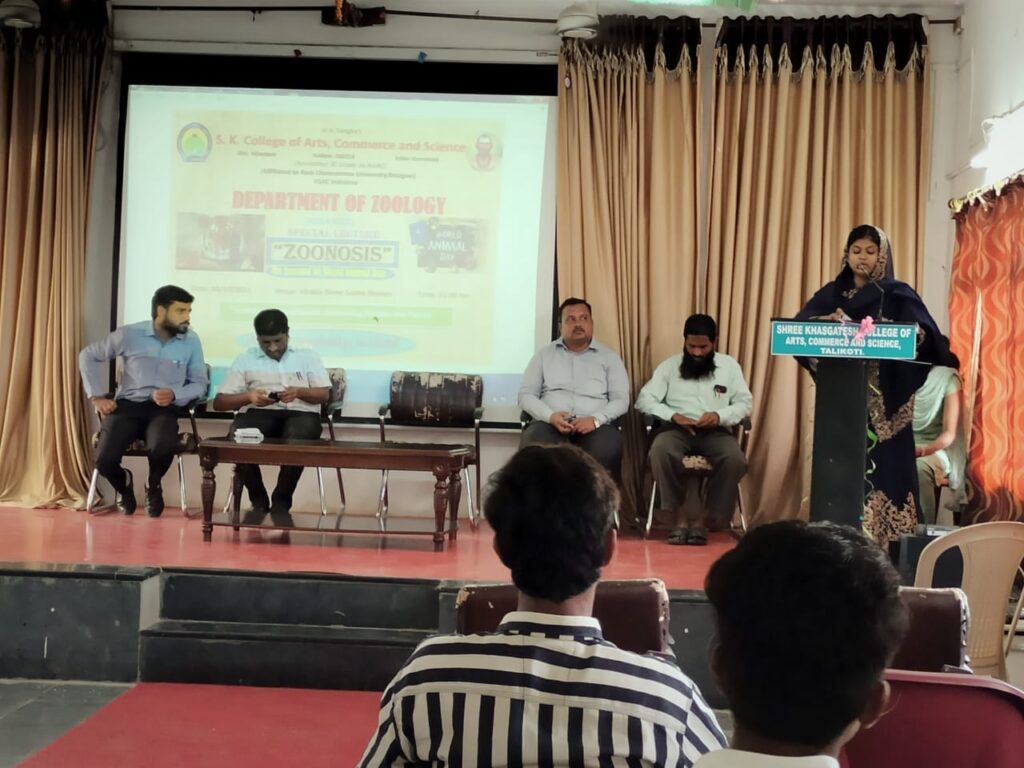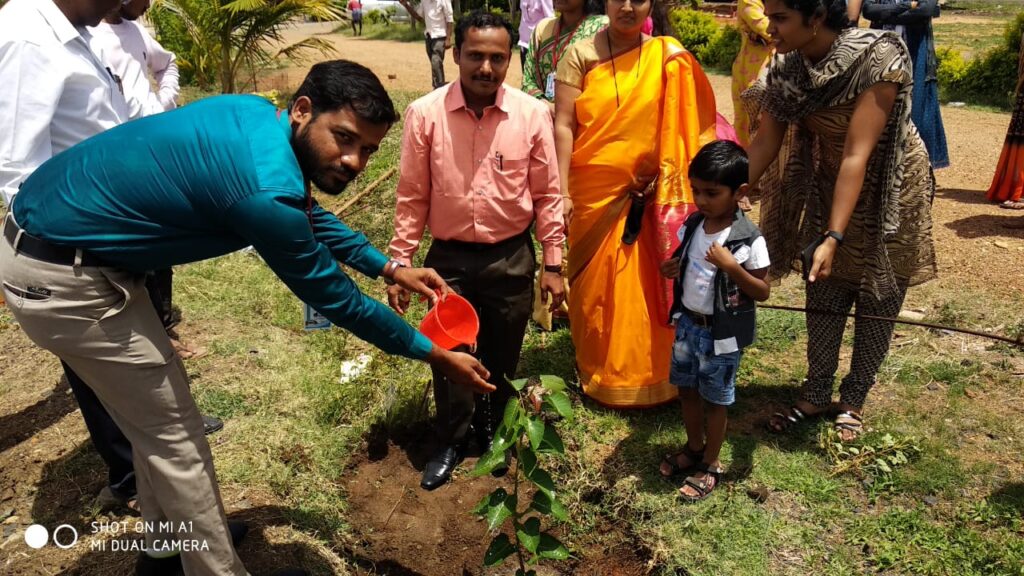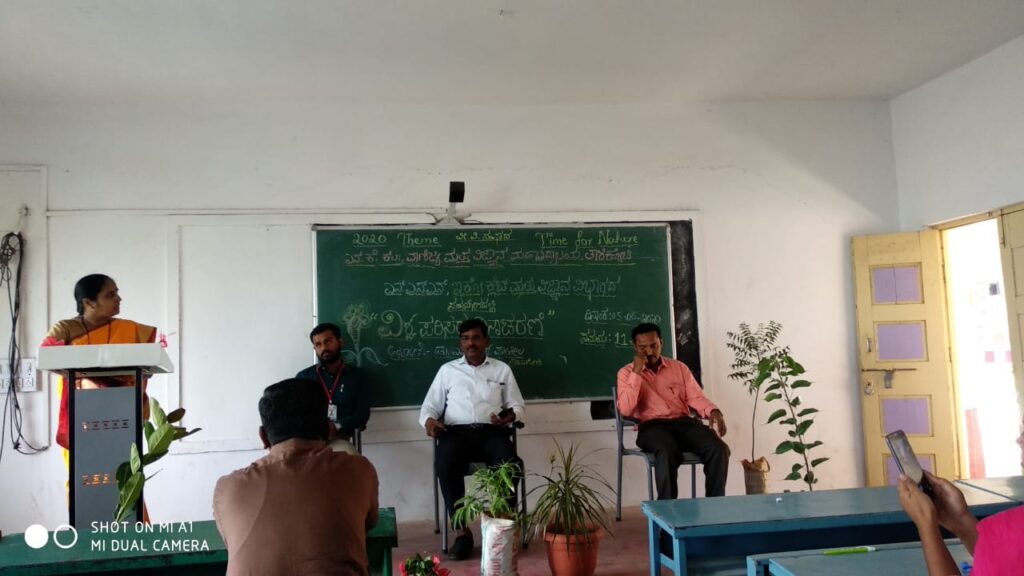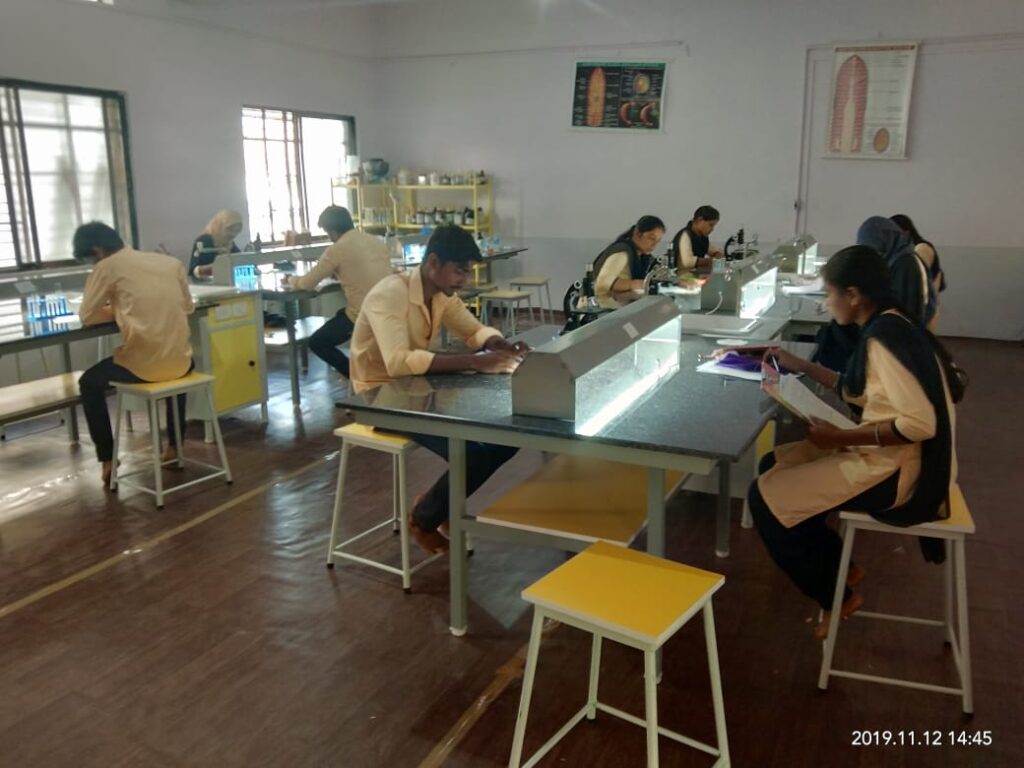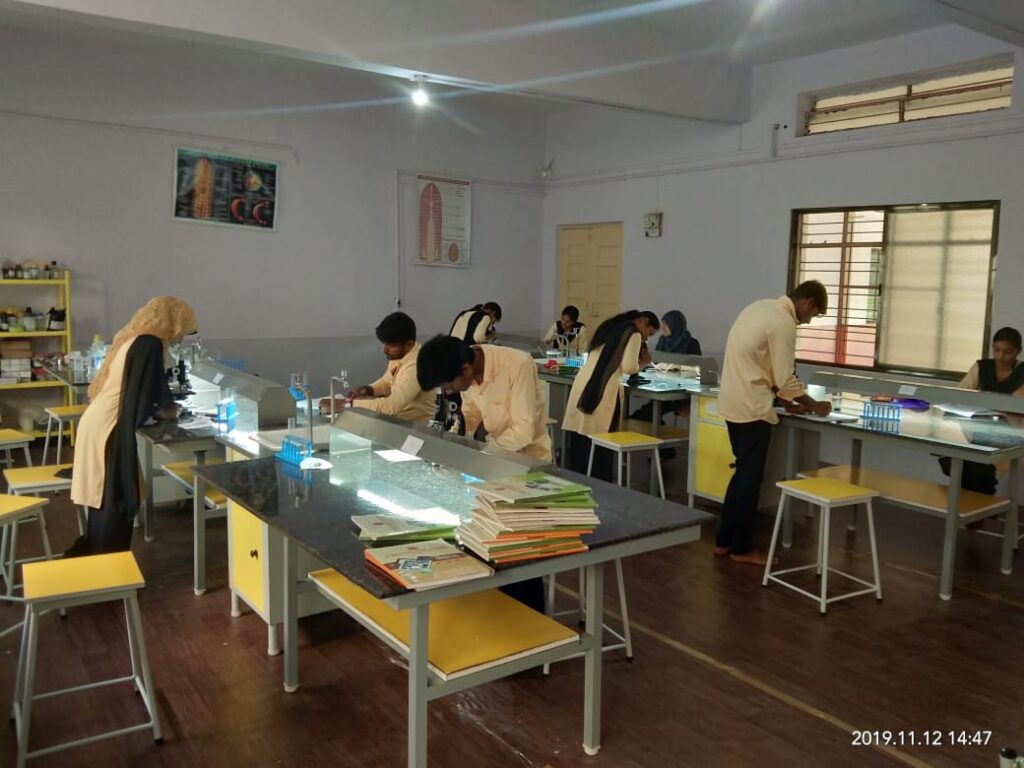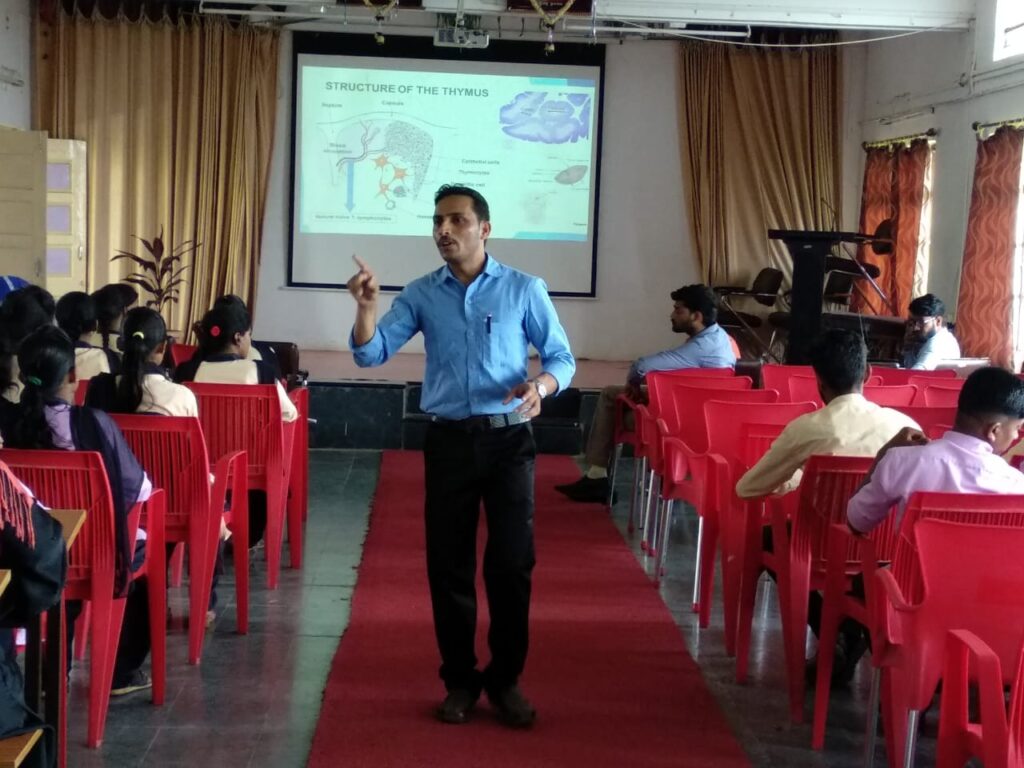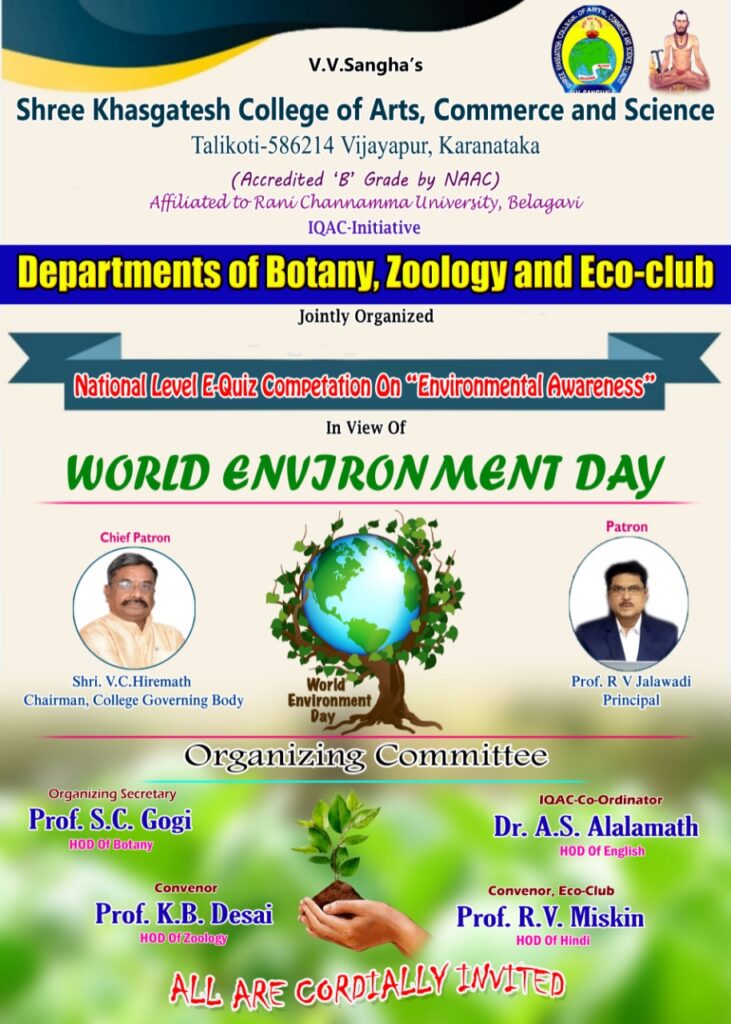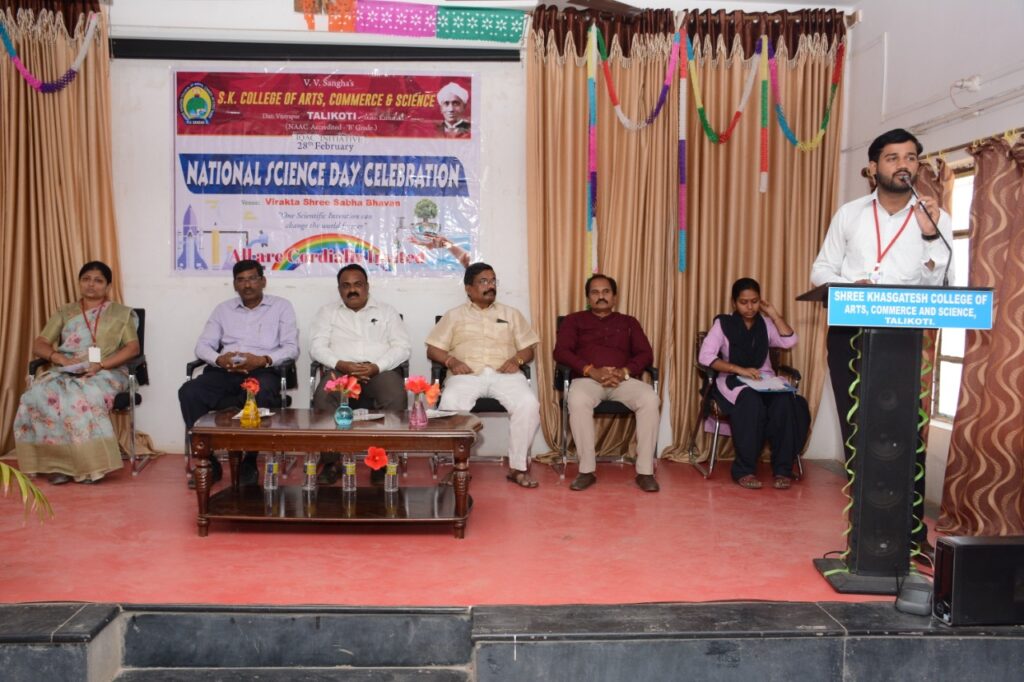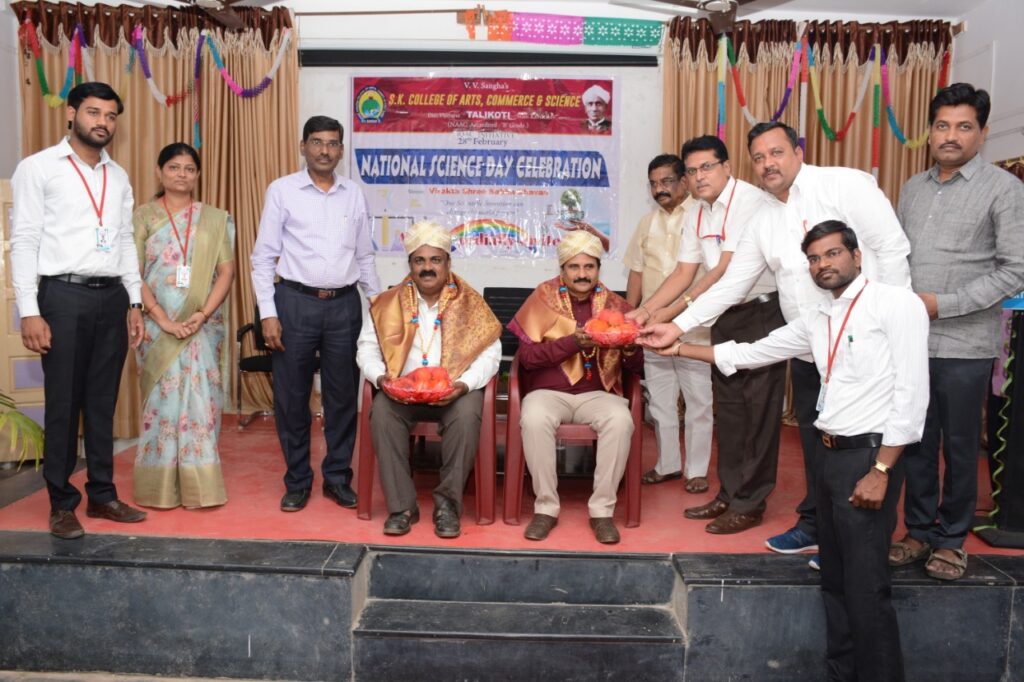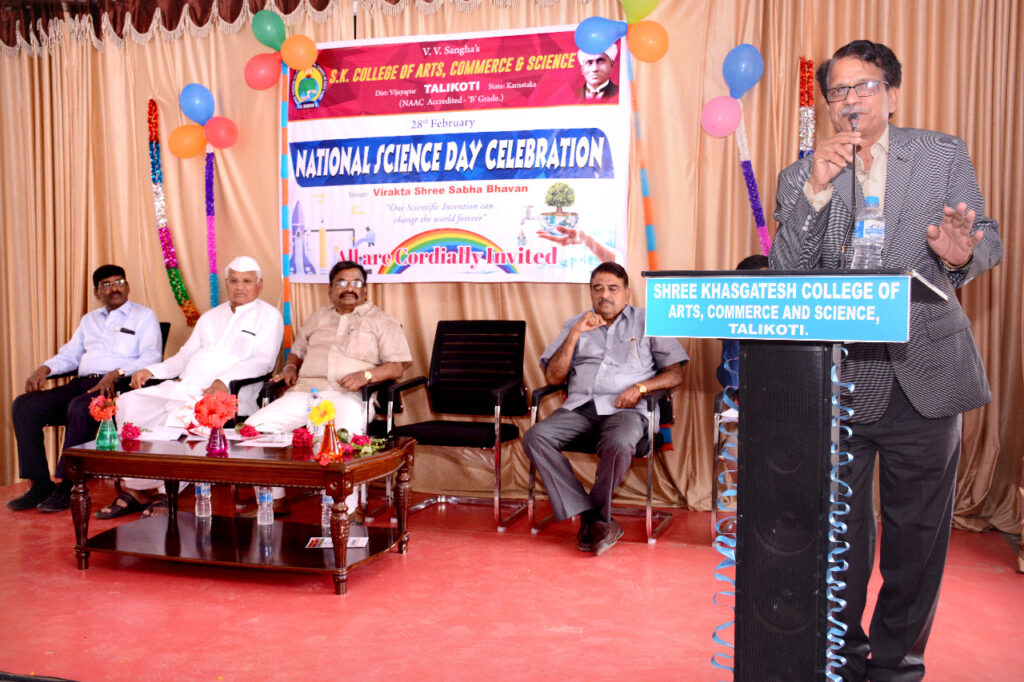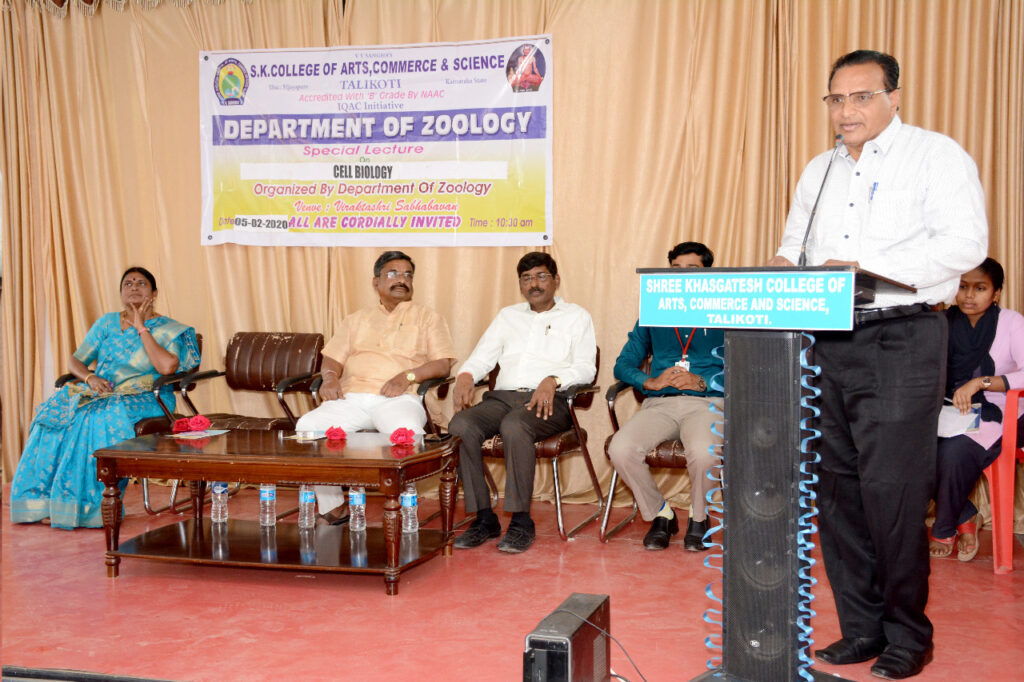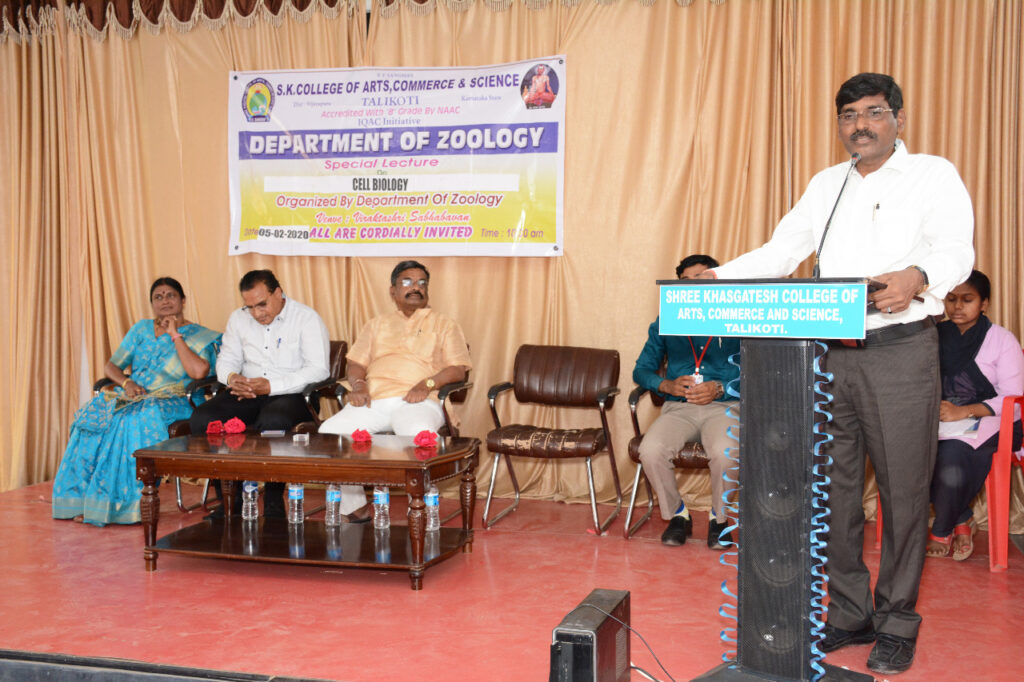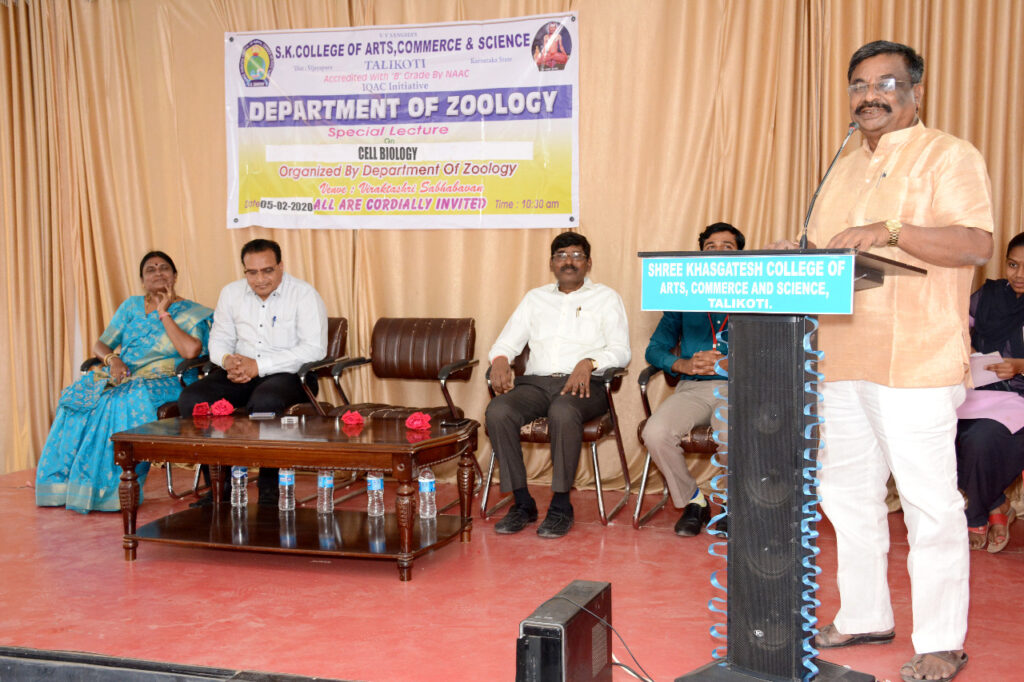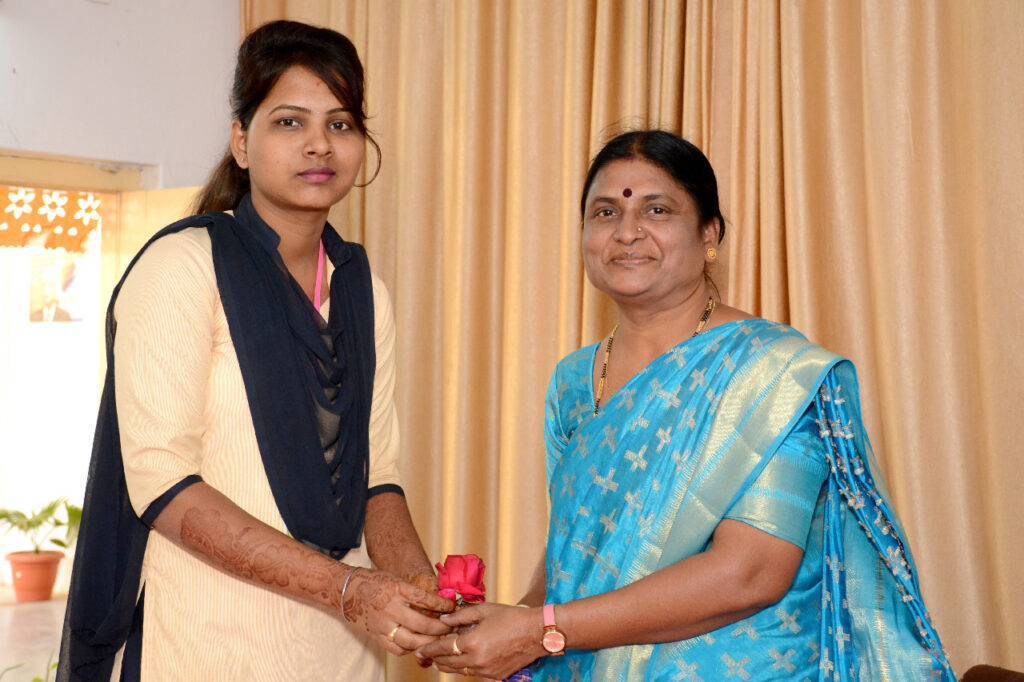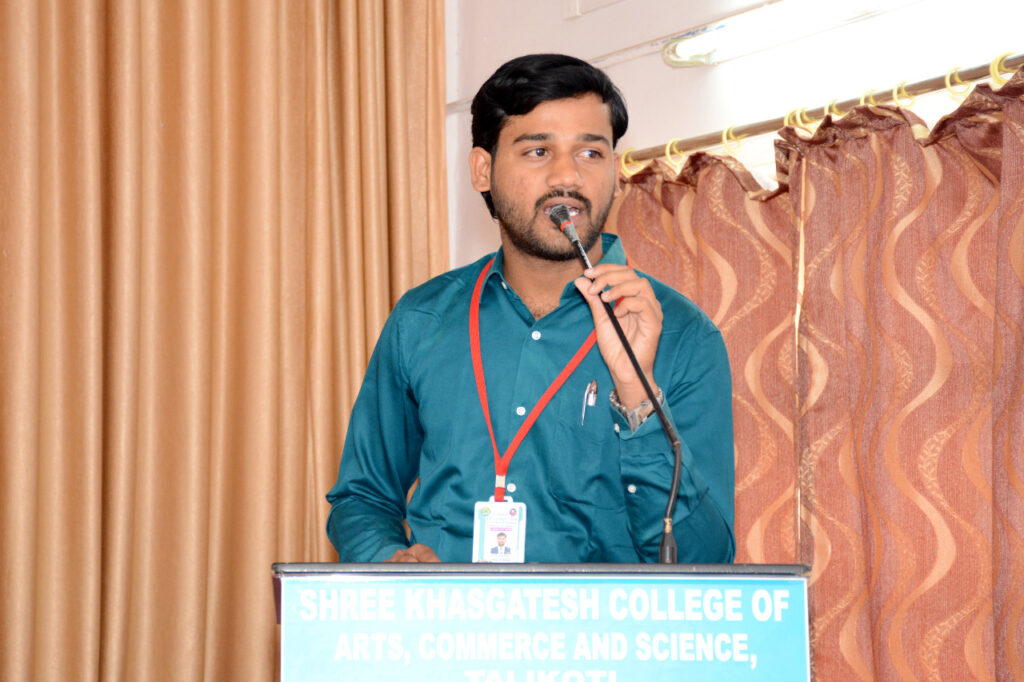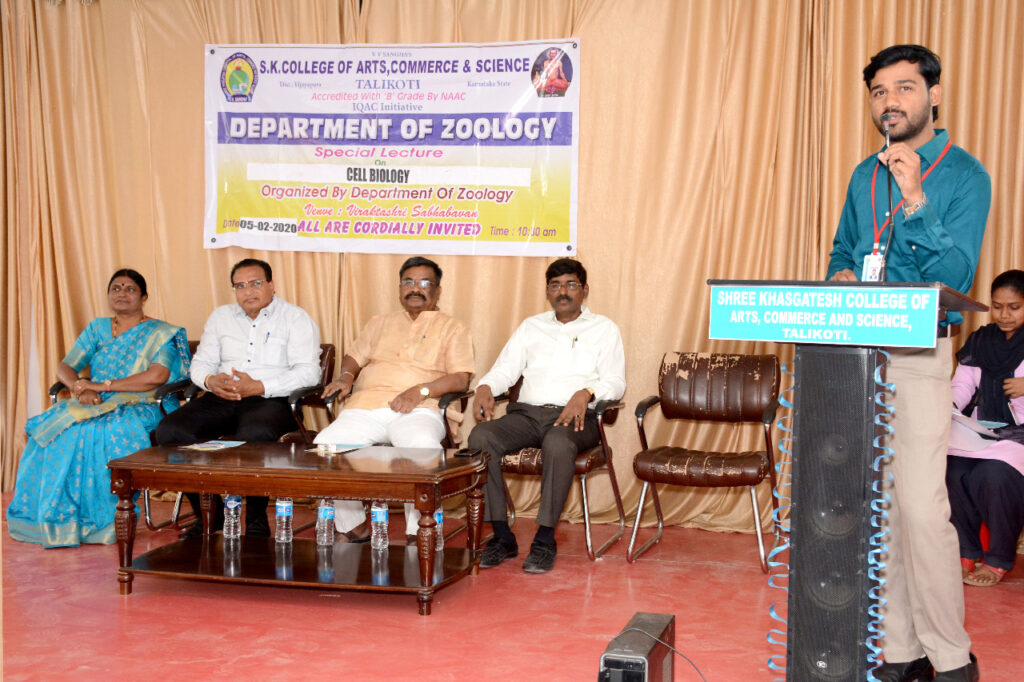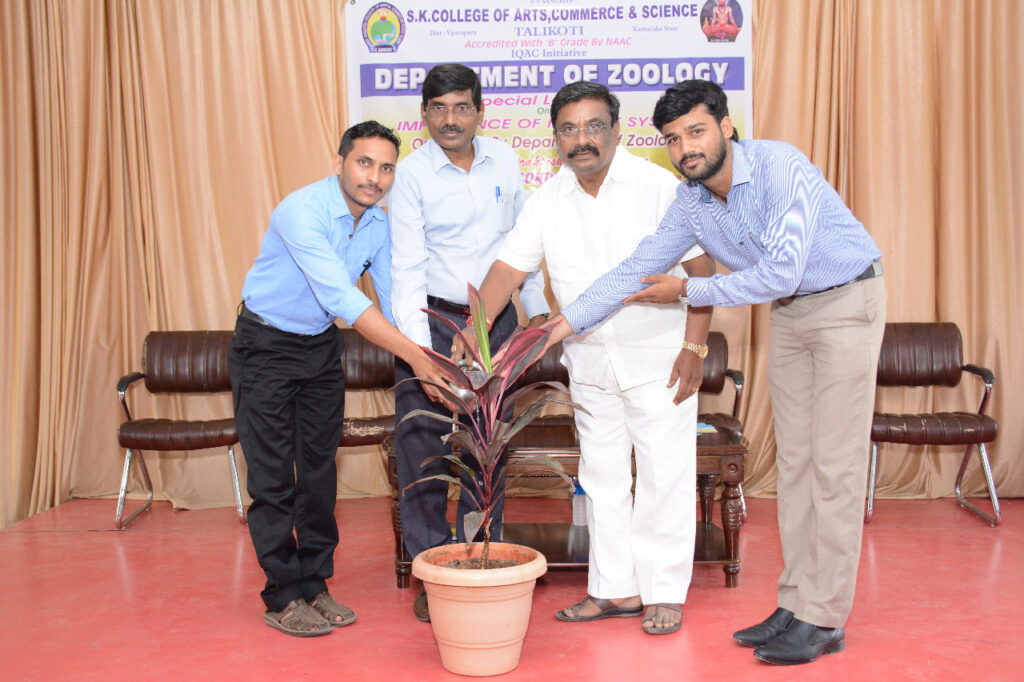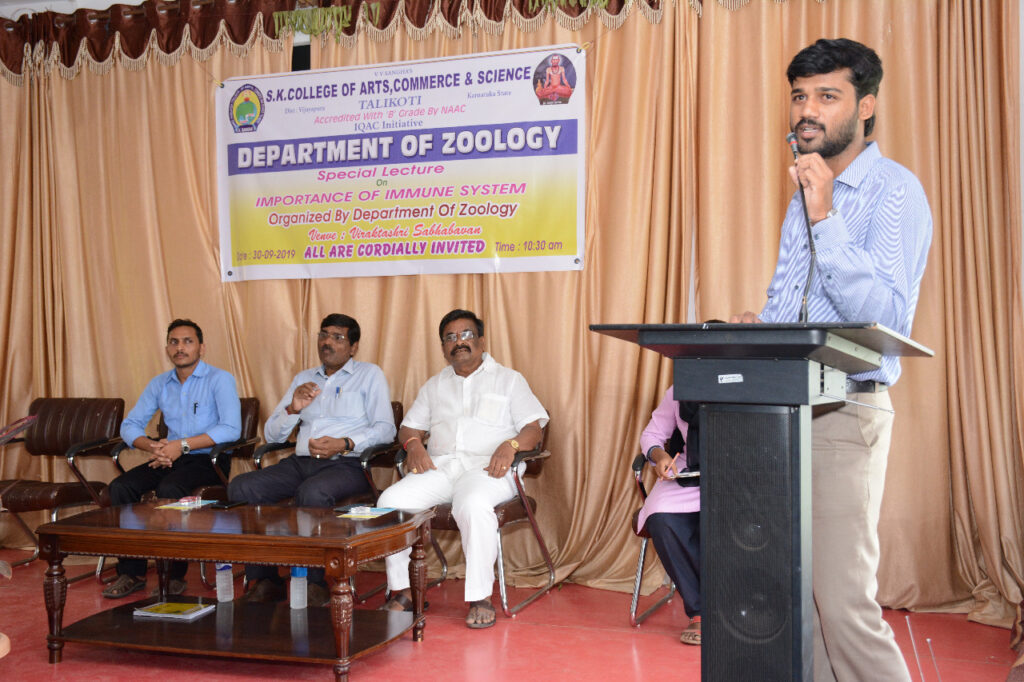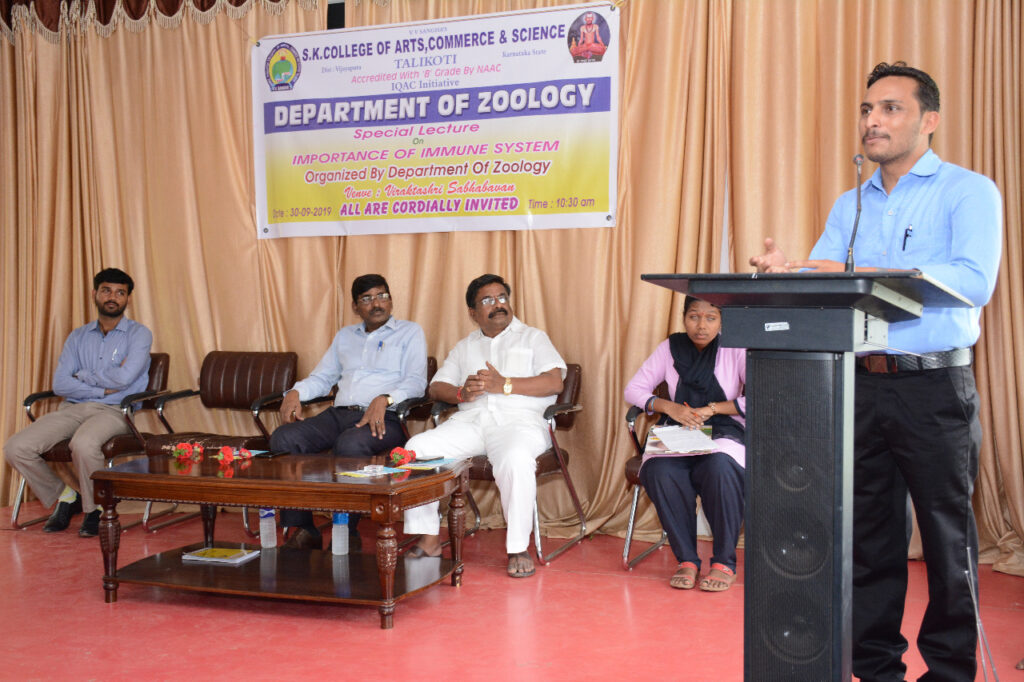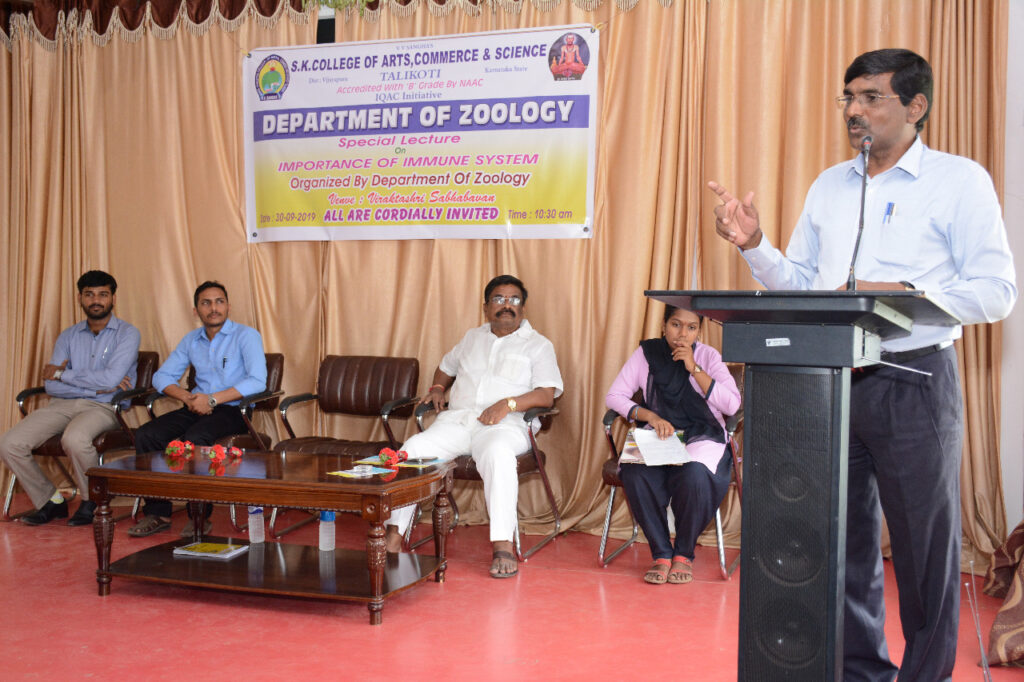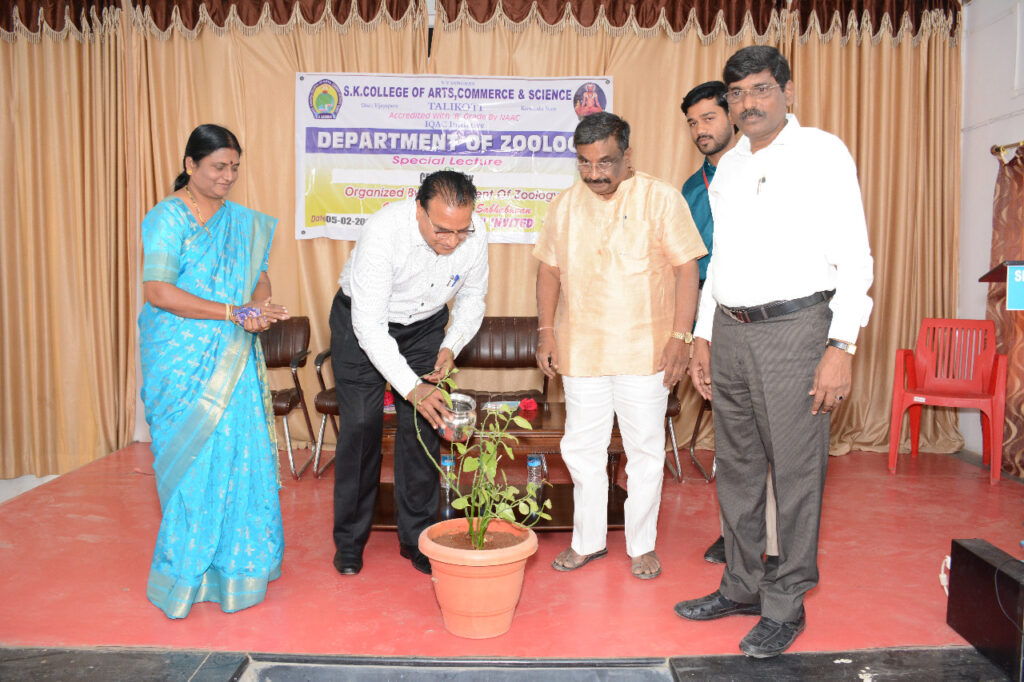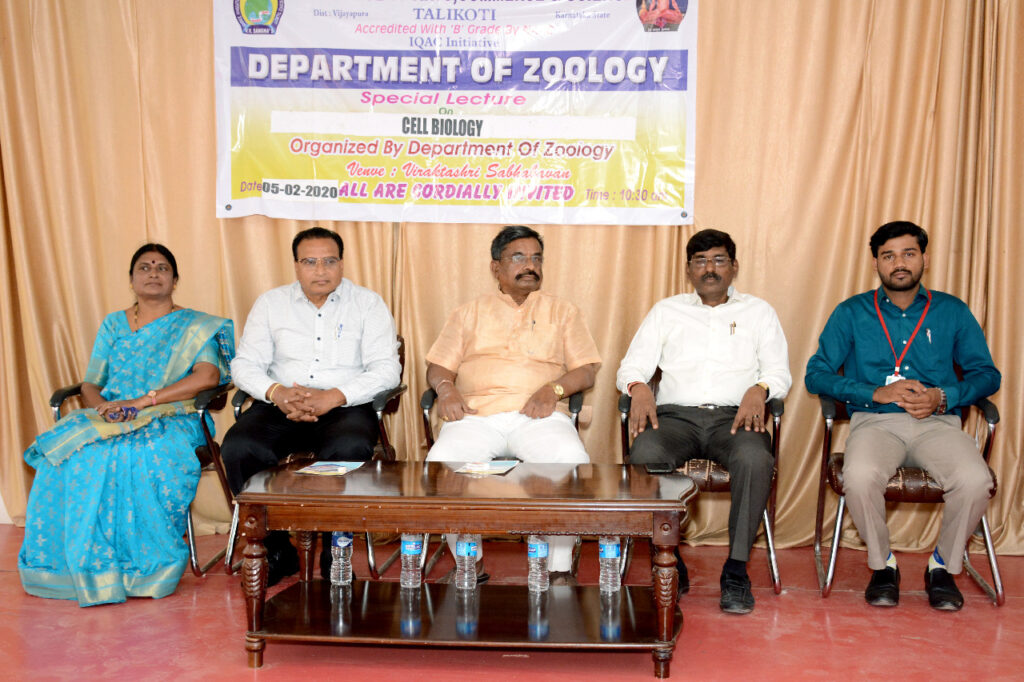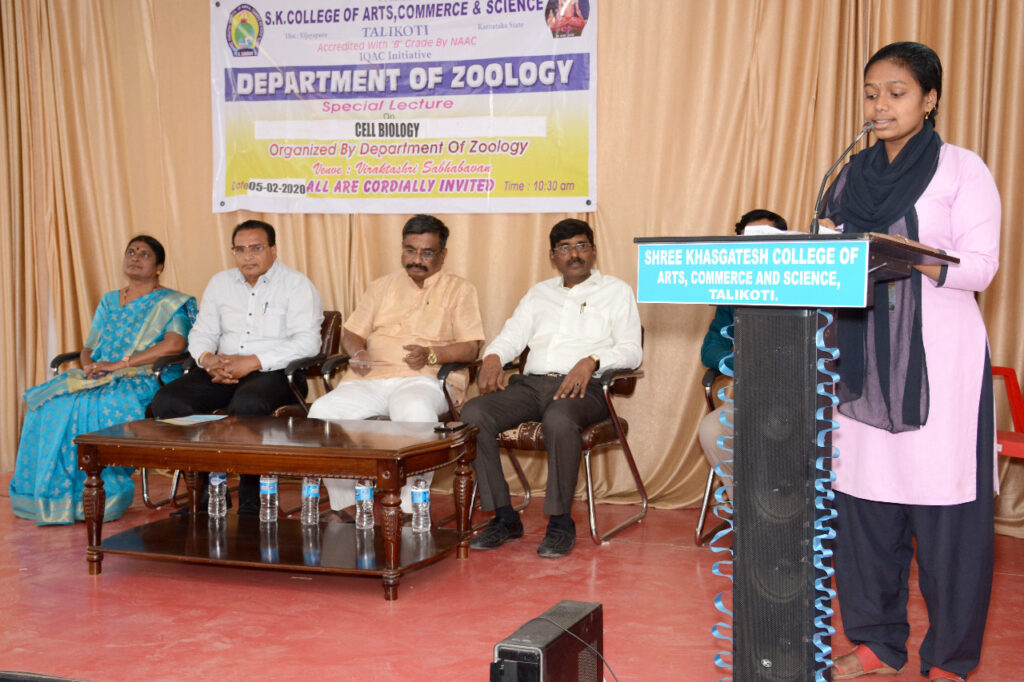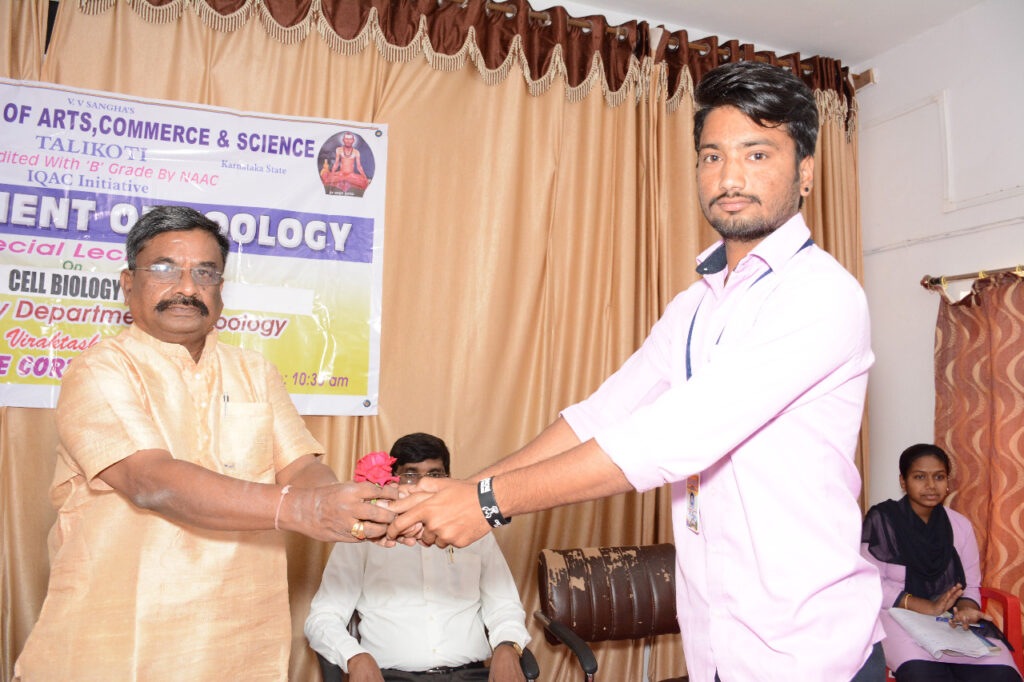PROGRAMME OUTCOME
|
Programme
|
Objectives
|
|
PO1: Understanding of fundamental knowledge
|
Definition, Concept, Principles, Types, Methods, etc…
|
|
PO2: Experimental learning methods.
|
Qualitative analysis, mounting, instrumental handling, demonstration.
|
|
PO3: Opportunities
|
Higher education, competitive exams, Entrepreneurship and job career.
|
PROGRAMME SPECIFIC OUTCOMES
|
Programme
|
Objectives
|
|
PSO1: Acquiring basic fundamental parameters.
|
Definition, concept, Types, Principles, Functions, Lifecycle.
|
|
PSO2: Interdisciplinary Courses.
|
Parasitology, Embryology, Cytology, Oncology, Animal behaviour, Biotechnology, Biostatistics, Applied Zoology, Biochemistry, Genetics, Bioenergetics, Immunology.
|
|
PSO3: Exploring Animal Diversity
|
Identification of variety of Invertebrate and vertebrate species.
|
|
PSO4: Development of designing skills.
|
Graphs diagrams biological cycles.
|
|
PSO5: Ability to Enhance skills
|
Making of permanent histological and embryological slides, Staining procedures, Mounting.
|
|
PSO6: Awareness to technology
|
Biotechnology, Nanotechnology.
|
|
PSO7: Building applied skills in environmental science.
|
Bio-conservation, Wild life management.
|
|
PSO8: Building research culture
|
Developmental biology , cell biology, animal physiology, oncology, Endocrinology, parasitology.
|
|
PSO9: Field visit
|
Biodiversity, national parks and sanctuary, ecosystem (pond, marine and terrestrial), Biotechnological and Microbiology Equipped Laboratories, diagnostics centre.
|
|
PSO10: Part of government sectors.
|
Forest department, environmental sociologist, competitive exams.
|
|
PSO11: Self employment
|
Sericulture, Apiculture, Aquaculture, Vermiculture, Pest management, Pearl culture, Animal husbandry, Poultry, Biochemist.
|
B.SC V SEMESTER (PAPER I: APPLIED ZOOLOGY- THEORY)
CO1-Student will get knowledge of sericulture.
CO2- Student will earn the knowledge about apiculture.
CO3- Student will learn about Vermiculture.
CO4- Student will learn about aquaculture.
CO5- Student will learn about the animal husbandry.
B.SC V SEMESTER (PAPER I: APPLIED ZOOLOGY -PRACTICAL)
PCO1- Student will prepare a project on one of the applied branch studied in theory.
PCO2- Student will learn about the mulberry silkworm and life cycle.
PCO3- Student will learn about the non mulberry silk worm and diseases.
PCO4- Student will learn about species and castes of honey bee.
PCO5- Student will get the knowledge about agriculture pest and domestic pest.
PCO6- Student will learn about fisheries.
PCO7- Student will learn about variety of cow and buffaloes.
PCO8- Student will learn about the vermiculture.
PCO9- Student will learn about the poultry breeds.
B.SC VI SEMESTER (PAPER II: MICROBIOLOGY AND MODERN TECHNIQUE IN BIOLOGY THEORY)
CO1- Student will learn about the microbiology.
CO2- Student will learn the knowledge of Nanotechnology.
CO3- Student will understand the concept of bioinformatics.
CO4- Student will learn about the methods in biology.
CO5- Student will learn about research methodology.
B.SC VI SEMESTER (PAPERII: MICROBIOLOGY AND MODERN TECHNIQUE IN BIOLOGY- PRACTICAL)
PCO1- Student will learn about the micrometry.
PCO2- Student will prepare the liquid broth.
PCO3- Student will prepare the solid media.
PCO4- Student will prepare the agar slants.
PCO5- Student will study the different bacteria virus and fungi causing diseases in man.
PCO6- Student will learn about the bacterial cell counting using the haemocytometer.
PCO7- Student will study the simple and gram staining differentiation of bacteria.
PCO8- Student will study about the isolation and identification and enumeration of bacteria/ protozoa from moist soil or sewage water.
PCO9- Student will study the practical application of bioinformatics.
PCO10- Student will study the microbiological lab equipments.
CBCS Based:
B.Sc Ist Semester (Animal Diversity-THEORY)
CO1: Student will learn about general characters and classification and example of kingdom Protista, Phylum Porifera, Phylum Cnidaria, Phylum Platyhelminthes and Phylum Nemathelminthes.
CO2: Student will learn about general characters, classification and example of Phylum Annelida, Phylum Arthropoda, Phylum Mollusca and Phylum Echinodermata.
CO3: Student will learn about general features of Phylum Chordata, Agnatha and Gnathostomata, Pisces, Amphibia and Reptiles.
CO4: Student will learn about General features and Sailent features of Aves, Mammals.
B.Sc Ist Semester (Animal Diversity-PRACTICAL)
PCO1: Student will learn about making use of permanent slides/specimens example unicellular and cellular grade organized animals etc.
PCO2: Student will learn about Mounting of setae, blood glands, nephridia in Earthworm.
PCO3: Student will learn about Mounting mouth partsof honeybee, cockroach, housefly, mosquitoes.
PCO4: Student will learn about Mounting of brain in fowl/rat.
B.Sc IInd Semester (Anatomy Developmental Biology of Vertebrates-THEORY)
CO1: Student will learn about Integument in different classes of chordates, skeletal system and Digestive System.
CO2: Student will learn about Respiratory System, Circulatory System and Nervous System.
CO3: Student will learn about Early Embryonic Development.
CO4: Student will learn about Early Development of chick.
B.Sc IInd Semester (Anatomy Developmental Biology of Vertebrates-PRACTICAL)
PCO1: Student will learn about osteology:Disarticulated skeleton of frog and rabbit.
PCO2: Student will learn about Comparative study of girdles.
PCO3: Student will learn about Comparative account of heart and brain in different vertebrates.
PCO4: Student will learn about Embryology.
PCO5: Student will learn about Chick embryo mounting.
B.Sc IIIrd Semester (Physiology, Biochemistry and Histology-THEORY)
CO1: Student will learn about Digestion, Respiration and Excretion.
CO2: Student will learn about Circulation: Composition of blood, Hemostasis, Structure of heart.
CO3: Student will learn about Lipid Metabolism, Protein Metabolism and Enzymes.
CO4: Student will learn about Structure and Histology of Nerve and Muscle.
B.Sc IIIrd Semester (Physiology, Biochemistry and Histology-PRACTICAL)
PCO1: Student will learn about Preparation of hemin crystals.
PCO2: Student will learn about Study of permanent histological section of mammalian, salivary gland, and pancreas.
PCO3: Student will learn about Qualitative test of Carbohydrates, Proteins and Lipids.
PCO4: Student will learn about activity of salivary amylase under optimum conditions.
PCO5: Student will learn about Preparation of permanent histological slides.
B.Sc IIIrd Semester Skill Enhancement Course (Medical Diagnostics-THEORY)
CO1: Student will learn about Importance Diagnostic methods used for analysis of blood and Diagnostic Methods used for Urine analysis.
CO2: Student will learn about Non-infectious Diseases, Infectious Diseases, Tumors and Syndrome.
B.Sc IVth Semester (Genetics and Evolutionary Biology-THEORY)
CO1: Student will Study about Introduction to Genetics, Mendelian Genetics and Linkage, Crossing over and Chromosomal Mapping.
CO2: Student will learn about Mutations, Sex Determination and Introduction to Evolutionary Theories.
CO3: Student will learn about Origin of life, Evidence in favor of organic evolution and Process of Evolutionary Change.
CO4: Student will learn about Species Concept, Macro-evolution and direct evidence of Evolution.
B.Sc IVth Semester (Genetics and Evolutionary Biology-PRACTICAL)
PCO1: Student will study about Mendelian Inheritance and gene interaction.
PCO2: Student will learn about Linkage, recombination.
PCO3: Student will learn about Human Karyotype and Study of fossil.
PCO4: Student will learn about Evolution of horse and Darwin’s Finches with diagrams.
PCO5: Student will learn about Preparation of salivary gland chromosomes.
B.Sc IVth Semester Skill Enhancement Course (Aquarium fish keeping-THEORY)
CO1: Student will learn about Introduction to Aquarium Fish Keeping, Biology of Aquarium Fishes and Food and feeding of Aquarium fishes.
CO2: Student will learn about Fish Transportation, Maintenance of Aquarium and Aquarium design, Construction and Preparation.
NEP Based
B.Sc Ist Semester (Cytology, Genetics and Infectious Diseases – THEORY)
CO1: Student will learn about Structure and Function of Cell Organelles I in Animal cell and Structure and Function of Cell Organelles II in Animal Cell.
CO2: Student will learn about Nucleus and Chromatin Structure, Cell cycle, Cell Division and Cell Signaling.
CO3: Student will learn about Mendelism and Sex Determination and Extension of Mendelism, Genes and Environment.
CO4: Student will learn about Human Chromosomes and Patterns of inheritance and Infectious Diseases.
B.Sc Ist Semester (Cytology, Genetics and Infectious Diseases- PRACTICAL)
PCO1: Student will learn about Understanding of simple and compound microscopes.
PCO2: Student will learn about different cell types such as buccal epithelial cells, neurons, striated muscle cells using Methylene blue.
PCO3: Student will learn about different stages of Mitosis in root tip of Allium cepa.
PCO4: Student will learn about different stages of Meiosis in grasshopper testis.
PCO5: Student will learn about Parasites in humans and Mutant phenotypes of Drosophila sp.
B.Sc Ist Semester Open Elective (Economic Zoology – THEORY)
CO1: Student will learn about Sericulture and Apiculture.
CO2: Student will learn about Live Stock Management (Dairy, Poultry and Aquaculture).
CO3: Student will learn about Fish culture, Prawn culture, Vermiculture and Lac culture.
B.Sc IInd Semester (Biochemistry and Physiology – THEORY)
CO1: Student will learn about Structure and Function of Biomolecules and Classification and General Properties of alpha amino acids.
CO2: Student will learn about Metabolism of Carbohydrates, Lipids, Proteins and Nucleotides.
CO3: Student will learn about Digestion, Respiration, Circulation and Excretion in humans.
CO4: Student will learn about Nervous System, Endocrinology and Muscular System in humans.
B.Sc IInd Semester (Biochemistry and Physiology – PRACTICAL)
PCO1: Student will study about Preparation of models of nitrogen bases, amino acids, dipeptides, DNA and RNA.
PCO2: Student will learn about Qualitative analysis of Carbohydrates, Proteins, Lipids and Nitrogenous wastes.
PCO3: Student will learn about estimation of Hemoglobin in human blood using Sahli’shaemoglobinometer.
PCO4: Student will learn about countimg of RBC and WBC using Hemocytometer.
PCO5: Student will learn about differential staining of human blood corpuscles using Leishman stain.
B.Sc IInd Semester Open Elective ( Parasitology– THEORY)
CO1: Student will learn about general concepts of parasites, Parasitic Platyhelminthes and Parasitic Protists.
CO2: Student will learn about Parasitic Nematodes, Parasitic Arthropods and Parasitic Vertebrates.
CO3: Student will learn about Molecular diagnosis and clinical parasitology.

